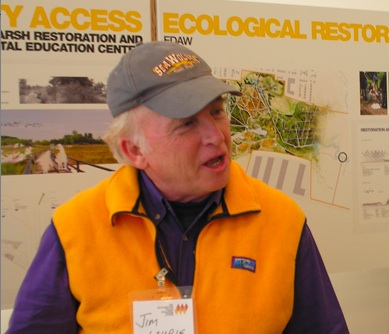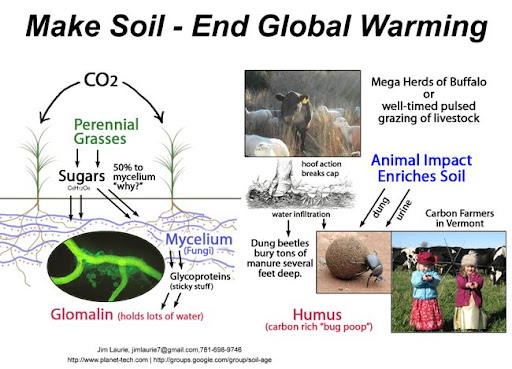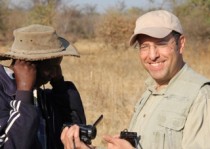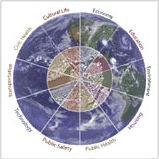You are here
Jim Laurie
 Jim Laurie
Jim Laurie
Futurist, Systems Biologist
28 Rich Road
Woburn, MA 01801
781-698-9746
jimlaurie7@gmail.com
jim@planet-tech.com
Overview
Jim Laurie is a biologist focused on biodiversity and ecosystem restoration as the key to creating a better future. Recently, he has been researching grassland restoration and its importance as the essential process to reverse global warming.
Background
Mr. Laurie has 30 years experience working for industry, nonprofits, futures think tanks, and educational and environmental interests. For 20 years Jim worked in the Houston petrochemical industry as the Laboratory Training Supervisor and Environmental Biologist with Bayer Corp. While at Bayer, Jim implemented industrial wastewater experiments using purely biological processes. Working closely with ecosystem visionary, Dr. John Todd, Jim managed the startup of the "Vermont Living Machine" project in South Burlington, Vermont. This EPA funded project demonstrated ecosystems can effectively treat municipal wastewater without toxic materials. ("Living Machines" are also now called "Eco-Machines").
In 2005, he worked with business and environmental groups in California to create a restoration plan for the Eel River Valley. The goal is the restoration of salmon runs and redwood groves in an area that has been largely deforested.
More recently, Jim worked with Pogo Organics in Sunshine, Maryland, on the cultivation of mycelial networks for ecosystem restoration and mushroom culture. He also spent a summer volunteering with the International Wolf Center in Ely, MN learning and teaching about wolves and bears.
Mr. Laurie has spoken to numerous groups on the role of soils in climate change mediation, and has been featured on EcoShock (www.ecoshock.org), a weekly internet radio show. With his colleague, Seth Itzkan, he started the Google group Soil-Age. Mr. Laurie served as a 1LT in the U.S. Army as a Medical Operations Officer. He has a BA in biology from Rice University and an MS from University of Houston in Studies of the Future.
His most recent presentation to the Stockholm Environment Institute discussed the role of soil restoration for carbon sequestration and climate change mitigation. See his presentation, Make Soil - End Global Warming.
Jim's Blog: http://planet-tech.com/userblog/14
Items tagged with "Jim Laurie": http://planet-tech.com/category/freetags/jim-laurie
Personal Statement: Soils, Climate, Health, Economy, Future
The fate of humanity lies in soil. If we can restore the grasslands of the world, we can reverse climate change and assure a healthy future. Ecosystem restoration in nature's calling. Fertile soils sequester carbon and retain water. Working collaboratively with the subteranian species of the world will gaurantee we will have air to breath, water to drink, and food to eat. This is the basis of our future economy and civic well being. Understanding the science of these ecosystems is empowering and well within the means of lay people. It is also essential. I am committed to restoring the soils of the world and to teaching ecological dynamics, as we are coming to understand them, to those who want to learn.
Regarding climate change, we are already beyond safe levels for atmospheric CO2 and heading toward polar ice loss, warming of the oceans, and catestrophic consequences for modern civilization. In addressing this challenge, ecosystem restoration is our best friend and provides more dividends, by far, than technological fixes. The difference between the two, is that better technology only helps limit the rate at which we put carbon dioxide in the atmosphere. It still increases. Ecosystem restoration takes the carbon out. We need biology to do that. Solar panels, God bless them, won't take carbon out of the air. Grasslands will. Of course we need both. Technological innovation must be part of the mix, but we are greatly over-emphasizing that approach while bypassing a far more effective solution that is literally under our feet. It is time to understand the impact that ecosystem health has on our climate, our health, and our economy, and how taking simple, affordable steps to work with nature can tame our most intractable problems
| Attachment | Size |
|---|---|
| 89.43 KB |
- Log in to post comments



